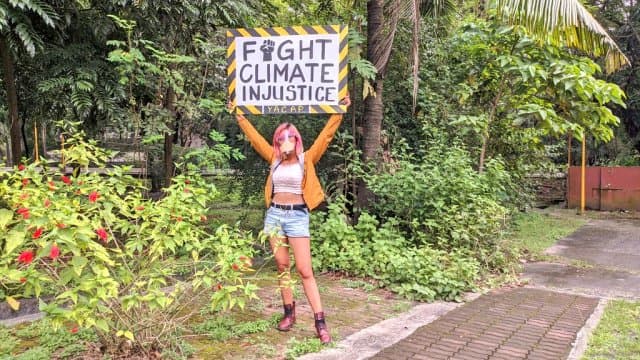Counter the fossil fuel rhetoric
When we first look upon the crisis we face today, it truly appears that we are screwed. With global warming past 1 degree Celsius, many communities are already experiencing the climate crisis’ disastrous consequences. Multiple studies from a variety of research efforts have repeatedly stated that a swift and just transition from fossil fuels to renewable energies is essential in mitigating further damage. Unfortunately, the majority of the world is far behind on this crucial task.1 Why is that? What hinders us from progressing towards this goal?
But, if you’d like to stick around for the long answer, here is an outlining of the facts as we know them. Fossil fuel CEOs and affiliated individuals have been known to push forward misleading narratives on the feasibility of renewable energies. There is criticism from every angle: it’s too expensive, it’s unpredictable and unreliable, and it leads to unemployment and undesired economic decline. Furthermore, they never fail to question whether or not the climate-related benefits of renewable energy reliance will ever outweigh the costs. Although not inherently groundless, these arguments have been disproven time and time again. In light of circumstances, the authors cannot help but consider them very silly arguments. But don’t take our word for it. We will proceed to present you with the facts, and we beg you to come to your own conclusion based on them. Just don’t forget — the fate of humanity hangs in the balance; and your common sense is instrumental in our interconnected struggle to tip the scales.

It must be noted that, as elaborated in an article by the Union of Concerned Scientists, fossil fuel costs are not solely limited to extraction, manufacturization, transportation, and the like (in other words, costs that are immediately visible) but human health, environmental damage, and labor implications as well. These aspects of fossil fuel costs are often hidden, and are sometimes difficult to quantify. This is especially emphasized by the fact that the consequences of these costs are often felt by a marginalized fraction of the world’s population.3 Regardless, these costs can accumulate to have a large impact on local economies. A Harvard study, for instance, that examined the public health consequences of coal mining found the estimated cost to be $74.6 billion annually.4
Moreover, despite the fact that a transition away from fossil fuels could perhaps reduce jobs within the fossil fuel industry, it may not necessarily result in net job losses in the community. Another Brookings report asserts that, in the United States, “many current fossil fuel hubs are ideal sites for renewable energy production. In total, a quarter of the counties in the U.S. with the greatest potential for both wind and solar electricity generation are also fossil fuel hubs.” 9 The report goes on to state that, with swift, coordinated political action that takes into account the undeniable complexity of this issue, we have a major opportunity to utilize resources that already exist to execute the shift to clean energy—all while providing those currently employed by the fossil fuel industry a promise of a sustainable future.
The fossil fuel industry has offered plenty of ways out of this predicament. Why aren’t we pursuing them?
Fossil fuel companies tend to promote the idea of net-zero; however, as illustrated in one of our previous articles, net-zero does not mean an end to emissions, and net-zero goals can often be used as an excuse to not take immediate action towards emission reduction.10 Big Oil and Gas will continue to wreak havoc on the environment and marginalized communities while putting greenhouse gases into the atmosphere. They believe they can offset this damage through carbon capture and storage technologies. That all sounds dandy, right? No harm at all? Well, it’s not as easy as that. Such technologies have not been tested on large scales, and significant amounts of research are still needed. On top of that, carbon capture technologies do not yet exist on a scale close to what would be needed if we were to implement them in accordance with net-zero scenarios.11
Simply put: the solutions that are put forward are frequently the solutions that are specifically beneficial for the fossil fuel industry. Since this is the prioritized purpose of their suggestions, the effectiveness of the majority of their proposed solutions is highly questionable. In other words, the solutions that lead to their continued survival are the ones they urge us to pursue.
So what would be a just, sustainable transition? Well, it’s complicated. There are many scenarios that employ a deliberate shift to a more sustainable and habitable future. In general, there are some core principles to keep in mind. As detailed by the Climate Justice Alliance, a just transition:
A just transition will not involve remote technologies or be led by those in positions of wealth and privilege. Instead, the knowledge and experiences of indigenous and Global South communities will provide for a more equitable future. As stated by climate justice activist Mitzi-Jonelle Tan:

Mitzi Jonelle Tan- Youth Advocates For Climate Action Philippines
Endnotes
1 Joshi, Ketan. “Carbon capture keeps proving its critics right. What comes next?” ACCR LobbyWatch, Medium, https://medium.com/lobbywatch/carbon-capture-keeps-proving-its-critics-right-what-comes-next-32ac9750a7aa
2 International Renewable Energy Agency. “Renewable Power Generation Costs in 2020.” International Renewable Energy Agency, Jun 2020, https://www.irena.org/publications/2021/Jun/Renewable-Power-Costs-in-2020
3 Union of Concerned Scientists. “The Hidden Costs of Fossil Fuels.” Union of Concerned Scientists, 15 Jul. 2008, https://www.ucsusa.org/resources/hidden-costs-fossil-fuels#8
4 Epstein, P.R.,J. J. Buonocore, K. Eckerle, M. Hendryx, B. M. Stout III, R. Heinberg, R. W. Clapp, B. May, N. L. Reinhart, M. M. Ahern, S. K. Doshi, and L. Glustrom. 2011. Full cost accounting for the life cycle of coal in “Ecological Economics Reviews.” Ann. N.Y. Acad. Sci. 1219: 73–98.
5 Bond, Kingsmill, et al. “The Sky’s the Limit: Solar and wind energy potential is 100 times as much as global energy demand.” Carbon Tracker, 23 Apr. 2021, https://carbontracker.org/reports/the-skys-the-limit-solar-wind/
6 Union of Concerned Scientists. “Is Renewable Energy Reliable?” Union of Concerned Scientists, 23 Apr. 2015, https://www.ucsusa.org/resources/renewable-energy-reliable
7 Tomer, Adie, et al. “How renewable energy jobs can uplift fossil fuel communities and remake climate politics.” Brookings, 23 Feb. 2021, https://www.brookings.edu/research/how-renewable-energy-jobs-can-uplift-fossil-fuel-communities-and-remake-climate-politics/
8 Saha, Devashree, and Sifan Liu. “Increased automation guarantees a bleak outlook for Trump’s promises to coal miners.” Brookings, 25 Jan. 2017, https://www.brookings.edu/blog/the-avenue/2017/01/25/automation-guarantees-a-bleak-outlook-for-trumps-promises-to-coal-miners/
9 Tomer, Adie, et al. “How renewable energy jobs can uplift fossil fuel communities and remake climate politics.” Brookings, 23 Feb. 2021, https://www.brookings.edu/research/how-renewable-energy-jobs-can-uplift-fossil-fuel-communities-and-remake-climate-politics/
10 Joshi, Ketan. “Carbon capture’s litany of failures laid bare in new report.” Renew Economy, 14 Apr. 2021, https://reneweconomy.com.au/carbon-captures-litany-of-failures-laid-bare-in-new-report/
11 Joshi, Ketan. “Carbon capture keeps proving its critics right. What comes next?” ACCR LobbyWatch, Medium, https://medium.com/lobbywatch/carbon-capture-keeps-proving-its-critics-right-what-comes-next-32ac9750a7aa
12 Climate Justice Alliance. “Just Transition Principles.” https://drive.google.com/file/d/0BxqkHpiiFq_eWk9QR1JwNFRDSndzZEVwRmtWZkZFcXdWWTBn/view?resourcekey=0-P2LH_9d85IjZTXrwwB91pw

